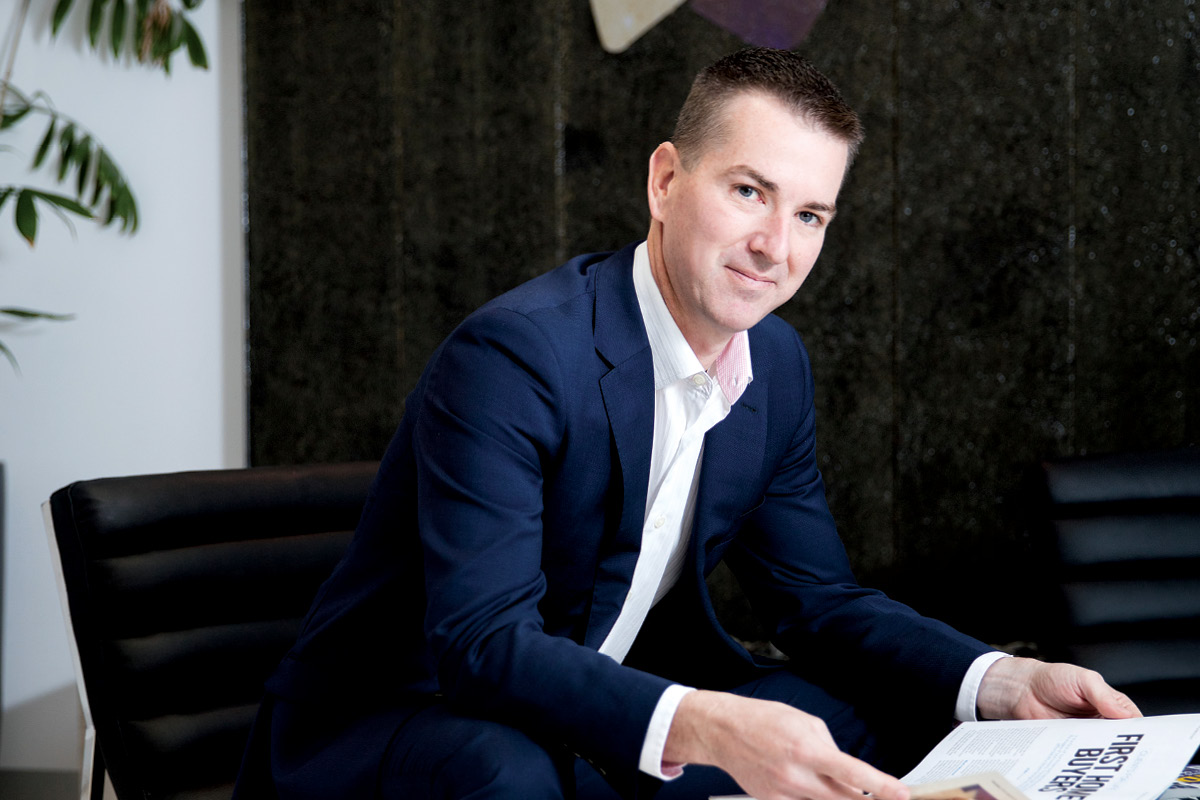Running a parent company called Ethical Lending Concepts, Jason Back is well aware of the wider perception problem of Australian financial services. One only needs to look at Commonwealth Bank’s handling of recent allegations that it had breached anti-money-laundering laws as evidence.
As the Managing Director of The Australian Lending & Investment Centre (ALIC) – one of two entities under the Ethical Lending Concepts umbrella (the other being Professional Mortgage Managers) – Jason says the problem essentially boils down to the top-down hierarchy of many of the firms within the industry.
He believes the values and behaviour of an organisation need to be organic and driven internally.“I recall someone saying to me recently, ‘In life, we’re not going to be comparing ourselves to others, but comparing and holding ourselves to our highest values,’ ” Jason says. “We hold ourselves to the highest standards on everything around educating our clients on the best structure and strategy for their mortgage.”
Finding the best mortgage strategy for the client
Jason estimates it takes around one or two years to nail down the best mortgage strategy for a client, for which the broker is then paid accordingly. ALIC has set up the business model in a way that it can afford to take that amount of time to work with a client. But given the realities of a commission-based industry like financial services, such a business model is more an aberration than the rule.
“If you’ve got a banker, a broker or a car salesman and they have only one or two sales that month, their behaviour will begin to change. They will drive harder because they’re relying on those commissions or salaries or business to live off,” he explains. “They will start to push or pull a client to get the sale rather than lead them to the destination they want.”

[Some organisations] need to think about working in a collaborative way as a community and realise that they can’t have every customer and maximise every market.
According to Jason, the problem is a misalignment between having the right company strategy and the respective culture to complement it. He thinks some CEOs in financial services need to sit back and think about the position they hold within the wider community every time they look at their inbox thinking about maximising shareholder returns.
“Strategy gives direction, but culture delivers strategy. Some organisations, including the banks, have lost their way with respect to strategy,” he says. “They need to think about working in a collaborative way as a community and realise that they can’t have every customer and maximise every market. They may have to sometimes give up a few opportunities and be okay with that.”
Jason Back creates a cultural change at ALIC
A couple of years ago, Jason recruited an external consultant to examine ALIC’s internal culture to better understand the motivational drive and behaviour of his staff. He wanted to find out things such as whether staff members loved a structured day with plenty of silence or whether they preferred high-activity environments instead.
As a result, Jason was able to break it down and truly understand how his people worked together. This has meant some staff had to move on because they didn’t naturally fit into the company’s direction.
“We spent a significant amount of time and money in understanding the players we had on the roster, and then determined who would be best suited for certain roles based on where we wanted to head,” he says.
“Then we set a clear path for our team to follow in order to achieve this. At the end of the day, they’re creating the culture.” Another key part of ALIC achieving lasting cultural change is choosing to partner with businesses that share the same values – those who are client-first and who are also not afraid to challenge industry norms.
One such example of cultural alignment is ALIC’s strategic partnership with CORE Property Advisory, one of Australia’s leading buyers’ advocates. Contrary to most real estate agents that work on behalf of the vendor, CORE is a ‘buy-side’ specialist helping home buyers and investors to identify, conduct due diligence, and negotiate better outcomes. It helps manage risk for ALIC clients to ensure they buy the right property at the right price.
“CORE has worked hard to build a culture based on trust and integrity, and this aligns well with our objective of always putting the client’s needs first,” says Jason. There is still one elephant in the room when it comes to culture in Australian financial services – the lack of female representation.
Closing the gender pay gap
Jason remains committed to changing that, as well as to closing the gender pay gap. “In my office, there is zero pay differential between men and women,” he says. According to the Workplace Gender Equality Agency, the national gender pay gap has hovered between 15 and 19% over the past two decades.
ALIC’s efforts at elevating women in financial services have not gone unnoticed. Last year, one of its brokers, Natasha Choi, was nominated at the recent Women in Finance Awards, recognising women leading their field across all areas of financial services. Jason calls it “madness” that equal pay for equal work between men and women is a conversation that is still happening today.
There are a lot of big-banner statements about gender equality in the workforce, but you have to follow through and do something about it.
“The industry has a perception problem on this front. We’ve got an incredibly ridiculous expectation that women have to do everything: be a mother, carer, full-time employee and housekeeper,” Jason says.
“There are a lot of big-banner statements about gender equality in the workforce, but you have to follow through and do something about it. “In ALIC, we drive practices and cultures that enable women to come into our office and maintain a work–life balance. We are big advocates of making that change and anything we can do to support that. We’re always excited about that.”
An industry body to represent mortgage brokers
Despite efforts to change the culture internally, Jason also understands that these efforts are meaningless unless those changes are spread industry-wide. That a proper industry body to represent the interests of mortgage brokers is still lacking is something that, according to Jason, is a major barrier to cultural change, noting that there are very few people who speak for the voices of the country’s 16,000-plus mortgage brokers.
“The majority of people don’t have time to get involved in the machinations that are happening at a higher level. I think we need people in our industry, people like myself, to stand up and give back to an industry that’s given so much to us,” says Jason.
“We’ve got industry bodies like the MFAA [Mortgage & Finance Association of Australia], which is a great example that covers banks and brokers, but we don’t have a voice that purely represents mortgage brokers.”
In addition, Jason thinks there needs to be a greater push in bringing mortgage broking to professional status. In comparison, there are moves to make other areas of financial services, such as financial advice, more professionalised. Currently, brokers only require a diploma and certificate to start practising.
“The analogy I use is when you’re rolled into surgery on a gurney and you have your surgeon with a smile on his face saying, ‘Hey, I’m super excited and pumped to be here today. It’s open heart surgery. I know you’re probably scared, but it’s my first day and you’re my first patient.’ Do you want that to be the same experience you have when someone is looking through your finances?” Jason asks.



